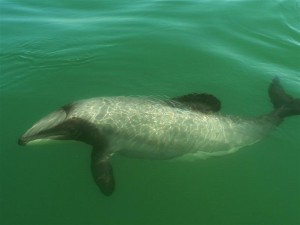 Today (18 June 2014), the Decision-Making Committee of the Environmental Protection Agency has turned down the application by Trans-Tasman Resources to carry out iron sand mining on the South Taranaki Bight.
Today (18 June 2014), the Decision-Making Committee of the Environmental Protection Agency has turned down the application by Trans-Tasman Resources to carry out iron sand mining on the South Taranaki Bight.
This is a big victory for KASM and all the other groups who lined up with submissions at the DMC hearings, including the Waitakere Ranges Local Board who raised the issue of the habitat of Maui’s dolphins.
Major reasons for DMA refusing the consent were the uncertainty of the environmental effects and those on the fishing industry and iwi and that the EEZ Act requires a precautionary approach to be taken.
Issued from the EPA:
“The DMC has issued a comprehensive decision setting out its reasons for refusing the consent. The major reasons for this were the uncertainties in the scope and significance of the potential adverse environmental effects and those on existing interests (such as the Fishing Interests and Iwi). The applicant and most submitters acknowledged that there was uncertainty and that in these circumstance the EEZ Act requires the EPA to favour caution and environmental protection (sections 61(2) of the EEZ Act).
With respect to uncertainty, the DMC considered whether the adaptive management approach proposed by the applicant would enable the application to be undertaken (sections 61(3) of the EEZ Act). The DMC found that the conditions proposed by the applicant (including the adaptive management approach) were not sufficiently certain or robust for the application to be approved given the uncertainty and inadequacy of the information presented about the potential adverse effects. The DMC also considered that there was also a lack of clarity about the extent of economic benefit to New Zealand outside of royalties and taxes and the economic value of the adverse effects.
Overall the DMC found that the application did not meet the sustainable management purpose of EEZ Act, including that it was not satisfied that the life-supporting capacity of the environment would be safeguarded or that the adverse effects of the proposal could be avoided, remedied or mitigated, given the uncertainty and inadequacy of the information presented. “
Here’s the whole decision:
Trans_Tasman_Resources_decision_17June2014
Here’s the media release from the Environmental Defence Society
The Decision-Making Committee (DMC) appointed by the Environmental Protection Authority has refused consent to Trans-Tasman Resources to mine ironsands in New Zealand’s exclusive economic zone.
During the hearing, EDS presented legal submissions focusing on the uncertain environmental effects, the need to favour caution and environmental protection when reaching a decision, and deficiencies in the proposed adaptive management approach, says EDS Executive Director Gary Taylor.
The DMC agreed with EDS and other submitters that the uncertainties in the scope and significance of effects on the environment and existing interests meant it was required to favour caution and environmental protection. The DMC considered whether a proposed adaptive management approach might work but reached the conclusion that the proposed conditions to implement the approach were not sufficiently certain or robust to give the degree of confidence needed to be able to grant consent.
The DMC indicated that application was premature and the applicant should have spent more time understanding the proposed operation and the receiving environment and engaging with existing interests and other parties.
Overall, the DMC concluded that the application would not achieve the sustainable management of the natural resources of the exclusive economic zone.
There was a significant amount of interest in this application from the public. The EPA received 4850 submissions.
The decision can give New Zealanders some confidence that the EEZ Act notified marine consent process is robust and free from political influence. It was the first application under the new law and sets a benchmark for others to follow. In particular, we think it reinforces the need for applicants for marine consents to engage early and meaningfully with key interest groups, stakeholders and iwi.
EDS would like to thank Rob Enright, Barrister who represented EDS at the hearing and all of the supporters who contributed to this case, Mr Taylor concluded.
More: Gary Taylor 09 810 9594


